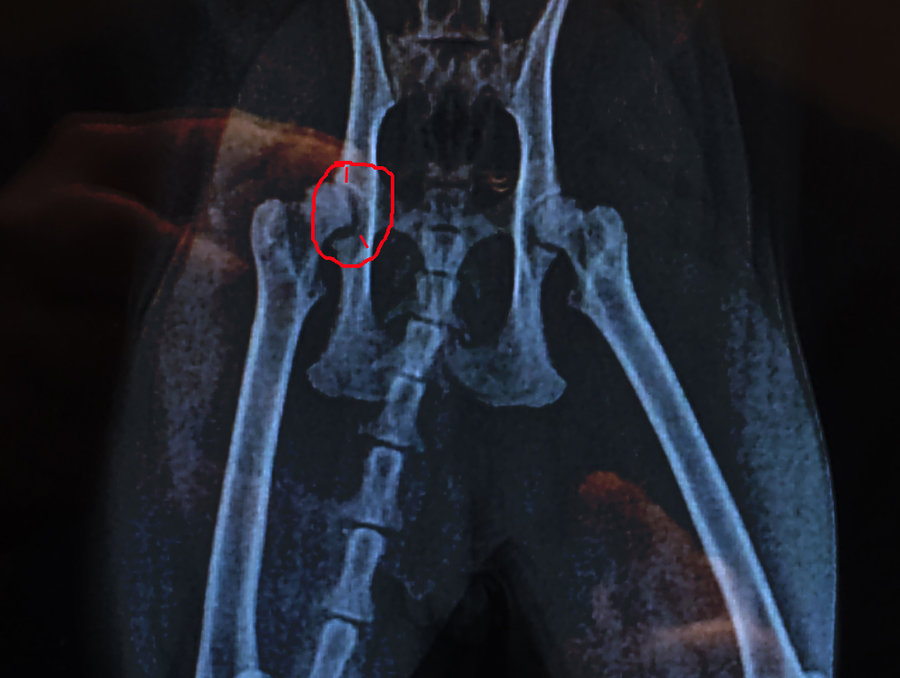- Joined
- Nov 27, 2013
- Messages
- 6
- Purraise
- 10
Our cat (Felix) recently and suddenly started limping. Examining him proved that there was no external injury, so we assumed he must have pulled a ligament or something. We took him to a vet. The vet felt around and his speculative (no x-ray) diagnosis was a torn ligament. He gave him "laser pain therapy" and a few syringes of pain med. We then took him to another vet. This vet gave him a general anesthesia and performed an x-ray.
Her somewhat surprised diagnosis was hip displasia. She allowed us to view the x-ray on a computer screen, of which I snapped the (enhanced) image below.
The X-ray seems to confirm her diagnosis, I guess (opinions appreciated). She said that we could give him glucosamine. Since he likes the outdoors, she also said we could let him out without concern.
Questions:
1. Any contradictory opinions on the diagnosis?
2. Assuming the diagnosis is valid (and it does seem so), is letting him outside OK? He limps pretty bad at times (and others, not). There don't seem to be in any symptoms of pain other than the limp. We can move the leg all around, press it, etc. and he never winces or nips. I do worry about him hurting himself climbing, jumping, etc. or not being able to get away from a dog. That said, he mostly just stays in our yard.
He was inside for 2 years and has only been outside for about 6 months (he comes inside suring the day to sleep for about 6 hours. Once it's dark, he wants out). He is miserable inside.
3. How do people here feel about the glucosamine recommendation? We've ordered the product in the link below.
Thanks for any help:
Her somewhat surprised diagnosis was hip displasia. She allowed us to view the x-ray on a computer screen, of which I snapped the (enhanced) image below.
The X-ray seems to confirm her diagnosis, I guess (opinions appreciated). She said that we could give him glucosamine. Since he likes the outdoors, she also said we could let him out without concern.
Questions:
1. Any contradictory opinions on the diagnosis?
2. Assuming the diagnosis is valid (and it does seem so), is letting him outside OK? He limps pretty bad at times (and others, not). There don't seem to be in any symptoms of pain other than the limp. We can move the leg all around, press it, etc. and he never winces or nips. I do worry about him hurting himself climbing, jumping, etc. or not being able to get away from a dog. That said, he mostly just stays in our yard.
He was inside for 2 years and has only been outside for about 6 months (he comes inside suring the day to sleep for about 6 hours. Once it's dark, he wants out). He is miserable inside.
3. How do people here feel about the glucosamine recommendation? We've ordered the product in the link below.
Thanks for any help:


